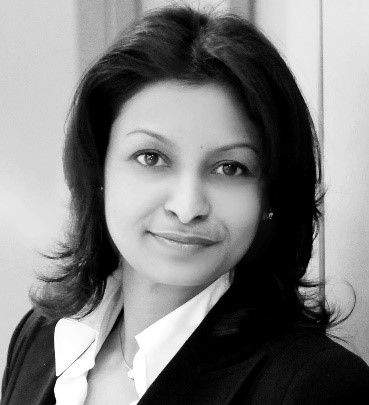Can newly elected CDU leader Armin Laschet outshine Merkel’s chancellorship?
#CriticalThinking
Professor of Economics and Finance at the International School of Management, Hamburg
A firm belief in Angela Merkel’s ideals, a conviction in Christian values of goodwill and unity, a knack for seeking cooperation and a pragmatist problem-solving approach characterise Armin Laschet’s values and position him as an experienced, legitimate and relatable member of the Christian Democrat Union (CDU) in Germany’s upcoming elections in 2021.
Laschet, who will turn 60 this month, studied law and journalism prior to gaining experience as a lawmaker in Germany’s most populous and industrial state, North Rhine-Westphalia. Having dedicated mentors in the CDU, they contributed to Laschet’s mastering of an argumentative and scrutinising yet consensus-building approach that enabled his systematic and gradual rise from communal to federal politics.
Laschet’s previous roles as member of the German and EU parliaments, cabinet minister, minister president and Merkel’s loyal party colleague make him indispensable in coalition governments. His unique political experience in steering less popular CDU party issues, such as integration, gender equality and EU solidarity, pitch him as a chancellor candidate among his peers as one who is genuinely interested in the party’s and the nation’s progress. Laschet’s political path demonstrates his view of globalisation as necessary for Germany’s economic survival. His focus on matching local problem-solving to equitable welfare render him as an eminent liberal socialist.
Laschet appears as the ideal candidate
In his candidacy speech for the office of CDU party leadership, Laschet narrated his motivation based on personal values of diligence, humility, constructivism and betterment for all. He dismissed polarizing tendencies among party colleagues as illogical and uncalled for in times of adversity, where toxic rhetoric does not solve complex problems, which rather demand interdisciplinary expertise and international cooperation to generate timely, sophisticated and acceptable solutions. Reasoning and moderation is his expectation and offer to all, while shunning entitlement or radical views.
On a perfunctory examination, Laschet appears as the ideal candidate as he comes closest to Merkel’s style of political manoeuvring that culminated in two decades of economic security in Germany, pro-Europeanism and a globally desirable image of the ‘Made in Germany’ brand. The fact that he was not Merkel’s first choice for leadership and chancellery is a subtle indication that it takes more than team camaraderie and law-making know-how to determine CDU leadership success.
Key elements of Merkel’s long-time chancellorship include a thorough knowledge of parliamentarian frameworks, a qualified understanding of constitutional rights and freedoms, a strong liking for the administrative juggernaut and dexterity in creating sustainable partnerships. It was Merkel’s sheer political aptitude and her certitude in getting things done that positioned her as a global leader in the face of a flailing USA and a subsequent weakening of the West.
As Laschet enters the fray, much has changed in Germany, the EU and the world. Immediate threats in Germany comprise the spread of the COVID-19 pandemic, sympathy for right-wing extremist views, popularity of conspiracy theories and households fearing insolvency. Long-run challenges are manifold, beginning with the creation of a robust digital infrastructure, innovation-focused investments in education, initiatives to establish a vibrant entrepreneurial culture and the overall reversal of the stagnating economic trend in Germany and the EU. Whether Laschet can deliver on these is the big question.
The German federal elections of 2021 will therefore be an introspective exercise
An open Francophile, Laschet is the right candidate for a pro-EU steering of German policy, but he lacks in areas of international expertise outside Europe. It is unclear whether he would bring in the necessary clout to the table when facing tough counterparts, like China or Russia, or the required charms to methodically eke out gains for Germany in allying with the USA, now that Joe Biden’s presidency is reclaiming its global directional role. The change in the nature and magnitude of problems combined with Laschet’s low scores in German polls make it difficult to declare him Merkel’s successor.
Now, Laschet seeks traction to beat his counterpart in CDU’s sister party, the Christian Social Union (CSU), Markus Söder, who deems himself as the better chancellor candidate of the CDU/CSU coalition. Laschet brings the better resume to the table, but Söder’s ultra-masculine insinuation may come through since German voters value a person’s optics more than the content they may offer, even though the contrary is energetically propagated. After almost two decades of Merkel, German polls indicate a yearning for a male lead.
Interestingly, in Merkel’s party, there is the least consensus on progressive thinking on climate change, diversity or social inclusion – all of which are culturally deemed as feminist or weak views. While Laschet, a versatile politician, knows there is no way around these pressing issues, the majority seems to tend to a savvy persona who steers clear of sticky topics rather than address and validate them. The German federal elections of 2021 will therefore be an introspective exercise, where voters should honestly ask themselves if the continuation of paternalist hegemonic systems is in their common interest of economic prosperity and social security.
Stay informed
